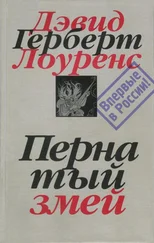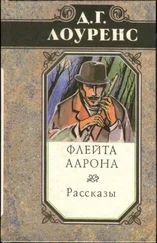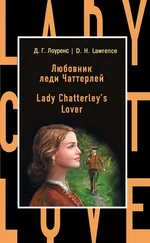Дэвид Лоуренс - Sons and Lovers
Здесь есть возможность читать онлайн «Дэвид Лоуренс - Sons and Lovers» весь текст электронной книги совершенно бесплатно (целиком полную версию без сокращений). В некоторых случаях можно слушать аудио, скачать через торрент в формате fb2 и присутствует краткое содержание. Жанр: Старинная литература, на английском языке. Описание произведения, (предисловие) а так же отзывы посетителей доступны на портале библиотеки ЛибКат.
- Название:Sons and Lovers
- Автор:
- Жанр:
- Год:неизвестен
- ISBN:нет данных
- Рейтинг книги:3 / 5. Голосов: 1
-
Избранное:Добавить в избранное
- Отзывы:
-
Ваша оценка:
- 60
- 1
- 2
- 3
- 4
- 5
Sons and Lovers: краткое содержание, описание и аннотация
Предлагаем к чтению аннотацию, описание, краткое содержание или предисловие (зависит от того, что написал сам автор книги «Sons and Lovers»). Если вы не нашли необходимую информацию о книге — напишите в комментариях, мы постараемся отыскать её.
Sons and Lovers — читать онлайн бесплатно полную книгу (весь текст) целиком
Ниже представлен текст книги, разбитый по страницам. Система сохранения места последней прочитанной страницы, позволяет с удобством читать онлайн бесплатно книгу «Sons and Lovers», без необходимости каждый раз заново искать на чём Вы остановились. Поставьте закладку, и сможете в любой момент перейти на страницу, на которой закончили чтение.
Интервал:
Закладка:
“I’ll learn ‘im!” said Morel. “It none matters to me whose lad ’e is; ‘e’s none goin’ rippin’ an’ tearin’ about just as he’ a mind.”
“‘Ripping and tearing about!’ ” repeated Mrs. Morel. “He was running after that Alfy, who’d taken his cobbler, and he accidentally got hold of his collar, because the other dodged—as an Anthony would.”
“I know!” shouted Morel threateningly.
“You would, before you’re told,” replied his wife bitingly.
“Niver you mind,” stormed Morel. “I know my business.”
“That’s more than doubtful,” said Mrs. Morel, “supposing some loud-mouthed creature had been getting you to thrash your own children.”
“I know,” repeated Morel.
And he said no more, but sat and nursed his bad temper. Suddenly William ran in, saying:
“Can I have my tea, mother?”
“Tha can ha’e more than that!” shouted Morel.
“Hold your noise, man,” said Mrs. Morel; “and don’t look so ridiculous.”
“He’ll look ridiculous before I’ve done wi’ him!” shouted Morel, rising from his chair and glaring at his son.
William, who was a tall lad for his years, but very sensitive, had gone pale, and was looking in a sort of horror at his father.
“Go out!” Mrs. Morel commanded her son.
William had not the wit to move. Suddenly Morel clenched his fist, and crouched.
“I’ll gi‘e him ‘go out’!” he shouted like an insane thing.
“What!” cried Mrs. Morel, panting with rage. “You shall not touch him for her telling, you shall not!”
“Shonna I?” shouted Morel. “Shonna I?”
And, glaring at the boy, he ran forward. Mrs. Morel sprang in between them, with her fist lifted.
“Don’t you dare !” she cried.
“What!” he shouted, baffled for the moment. “What!”
She spun round to her son.
“Go out of the house!” she commanded him in fury.
The boy, as if hypnotised by her, turned suddenly and was gone. Morel rushed to the door, but was too late. He returned, pale under his pit-dirt with fury. But now his wife was fully roused.
“Only dare!” she said in a loud, ringing voice. “Only dare, milord, to lay a finger on that child! You’ll regret it for ever.”
He was afraid of her. In a towering rage, he sat down.
When the children were old enough to be left, Mrs. Morel joined the Women’s Guild. 3It was a little club of women attached to the Co-operative Wholesale Society, which met on Monday night in the long room over the grocery shop of the Bestwood “Co-op.” 4The women were supposed to discuss the benefits to be derived from cooperation, and other social questions. Sometimes Mrs. Morel read a paper. It seemed queer to the children to see their mother, who was always busy about the house, sitting writing in her rapid fashion, thinking, referring to books, and writing again. They felt for her on such occasions the deepest respect.
But they loved the Guild. It was the only thing to which they did not grudge their mother—and that partly because she enjoyed it, partly because of the treats they derived from it. The Guild was called by some hostile husbands, who found their wives getting too independent, the “clat-fart” shop—that is, the gossip-shop. It is true, from off the basis of the Guild, the women could look at their homes, at the conditions of their own lives, and find fault. So the colliers found their women had a new standard of their own, rather disconcerting. And also, Mrs. Morel always had a lot of news on Monday nights, so that the children liked William to be in when their mother came home, because she told him things.
Then, when the lad was thirteen, she got him a job in the “Co-op.” office. He was a very clever boy, frank, with rather rough features and real viking blue eyes.
“What dost want ter ma‘e a stool-harsed awJack on ’im for?” said Morel. “All he’ll do is to wear his britches behind out, an’ earn nowt. What’s ‘e startin’ wi’?”
“It doesn’t matter what he’s starting with,” said Mrs. Morel.
“It wouldna! Put ‘im i’ th’ pit we me, an’ ’e’ll earn a easy ten shillin’ a wik from th’ start. But six shillin’ wearin’ his truck-end out on a stool’s better than ten shillin’ i’ th’ pit wi’ me, I know.”
“He is not going in the pit,” said Mrs. Morel, “and there’s an end of it.”
“It wor good enough for me, but it’s non good enough for ‘im.”
“If your mother put you in the pit at twelve, it’s no reason why I should do the same with my lad.”
“Twelve! It wor a sight afore that!”
“Whenever it was,” said Mrs. Morel.
She was very proud of her son. He went to the night school, and learned shorthand, so that by the time he was sixteen he was the best shorthand clerk and bookkeeper on the place, except one. Then he taught in the night schools. But he was so fiery that only his good-nature and his size protected him.
All the things that men do—the decent things—William did. He could run like the wind. When he was twelve he won a first prize in a race; an inkstand of glass, shaped like an anvil. It stood proudly on the dresser, and gave Mrs. Morel a keen pleasure. The boy only ran for her. He flew home with his anvil, breathless, with a “Look, mother!” That was the first real tribute to herself. She took it like a queen.
“How pretty!” she exclaimed.
Then he began to get ambitious. He gave all his money to his mother. When he earned fourteen shillings a week, she gave him back two for himself, and, as he never drank, he felt himself rich. He went about with the bourgeois of Bestwood. The townlet contained nothing higher than the clergyman. Then came the bank manager, then the doctors, then the tradespeople, and after that the hosts of colliers. William began to consort with the sons of the chemist, the schoolmaster, and the tradesmen. He played billiards in the Mechanics’ Hall. 5Also he danced—this in spite of his mother. All the life that Bestwood offered he enjoyed, from the sixpenny-hops axdown Church Street, to sports and billiards.
Paul was treated to dazzling descriptions of all kinds of flowerlike ladies, most of whom lived like cut blooms in William’s heart for a brief fortnight.
Occasionally some flame would come in pursuit of her errant swain. Mrs. Morel would find a strange girl at the door, and immediately she sniffed the air.
“Is Mr. Morel in?” the damsel would ask appealingly.
“My husband is at home,” Mrs. Morel replied.
“I—I mean young Mr. Morel,” repeated the maiden painfully.
“Which one? There are several.”
Whereupon much blushing and stammering from the fair one.
“I—I met Mr. Morel—at Ripley,” she explained.
“Oh—at a dance!”
“Yes.”
“I don’t approve of the girls my son meets at dances. And he is not at home.”
Then he came home angry with his mother for having turned the girl away so rudely. He was a careless, yet eager-looking fellow, who walked with long strides, sometimes frowning, often with his cap pushed jollily to the back of his head. Now he came in frowning. He threw his cap on to the sofa, and took his strong jaw in his hand, and glared down at his mother. She was small, with her hair taken straight back from her forehead. She had a quiet air of authority, and yet of rare warmth. Knowing her son was angry, she trembled inwardly.
“Did a lady call for me yesterday, mother?” he asked.
“I don’t know about a lady. There was a girl came.”
“And why didn’t you tell me?”
“Because I forgot, simply.”
He fumed a little.
“A good-looking girl—seemed a lady?”
Читать дальшеИнтервал:
Закладка:
Похожие книги на «Sons and Lovers»
Представляем Вашему вниманию похожие книги на «Sons and Lovers» списком для выбора. Мы отобрали схожую по названию и смыслу литературу в надежде предоставить читателям больше вариантов отыскать новые, интересные, ещё непрочитанные произведения.
Обсуждение, отзывы о книге «Sons and Lovers» и просто собственные мнения читателей. Оставьте ваши комментарии, напишите, что Вы думаете о произведении, его смысле или главных героях. Укажите что конкретно понравилось, а что нет, и почему Вы так считаете.









